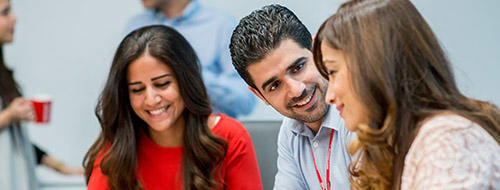Importance of Iron
When you are pregnant, your iron requirements are much greater than at any other stage in your life. In fact, the recommended dietary intake for iron increases by an extra 10-20mg a day during pregnancy.
The main reason for this increased requirement is that your growing foetus needs to build up its own iron reserves and it does this by taking the iron from your body.
It is therefore important to eat a variety if iron-rich foods when you are expecting. In some cases, an additional iron supplement may be required. Ask your doctor about this.
What is the role of iron?
Iron plays an important role in the body. One of the main roles of iron is to help our red blood cells transport oxygen to all parts of the body.
Iron also plays an important role in specific processes within the cell that produce the energy for our body. It is for this reason that one of the first symptoms of low body iron stores is tiredness and fatigue.
Iron-rich foods
There are two types of iron:
Haem Iron: This type of iron is found in animal-based foods, like red meat, poultry and fish. Haem iron is easily absorbed by the body.
Non-Haem Iron: This type of iron is found in plant-based foods like cereals, vegetables and legumes. In contrast to haem iron, our body doesn’t absorb non-haem iron as easily. However, because it is present in the diet in much larger quantities than is haem iron, it is an important source of this mineral. We generally obtain around 65% of our iron requirements from non-haem iron.
Iron Counter
Haem iron foods |
|
|---|---|
| FOOD | IRON CONTENT |
| 90g lamb liver | 8.6mg |
| 6 oysters | 3.5mg |
| 100g lean beef | 2.2mg |
| 120g fish (non-specified type) | 1.1mg |
| 100g chicken breast | 0.7mg |
Non-haem iron foods |
|
|---|---|
| FOOD | IRON CONTENT |
| 30g bran flakes | 5.4mg |
| ½ cup canned chickpeas | 1.6mg |
| ½ cup spinach | 0.6mg |
| 10 macadamia nuts | 0.4mg |
Liver is high in iron, but it is not recommended for pregnant women. This is because it is also very rich in vitamin A. Too much vitamin A in the diet can be harmful to the growing foetus.
To help your body absorb more of the iron from your diet, try combining foods or drinks rich in vitamin C with foods rich in non-haem iron. Examples of foods and drinks rich in vitamin C include oranges, orange juice, strawberries, kiwi fruit, capsicum and tomatoes.
Iron at different stages in life
As the body grows (both in childhood and during pregnancy) it requires increasing amounts of iron to produce blood and make muscle tissue.
Iron requirements are greatest during growth phases.
Iron requirements are also higher in menstruating women because of monthly blood losses.
More articles to help you plan your pregnancy |
|---|
